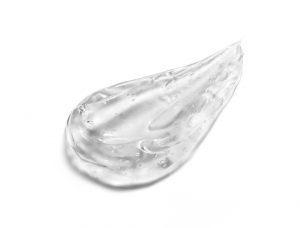 Silicones. They’re either loved or hated. They’ve been demonized and they’ve been praised. Most notably, they’ve been accused of being comedogenic; meaning that they will clog your pores leading to acne breakouts. But is this true? Today we will separate fact from fiction and learn the truth about silicones and their role in the beauty and skin care industry.
Silicones. They’re either loved or hated. They’ve been demonized and they’ve been praised. Most notably, they’ve been accused of being comedogenic; meaning that they will clog your pores leading to acne breakouts. But is this true? Today we will separate fact from fiction and learn the truth about silicones and their role in the beauty and skin care industry.
Fact Versus Fiction:
Silicones are class of chemicals known as ‘polymers’. Two basic elements make up silicones: silicon and oxygen, chemically written as SiO. Silicon is 14th on the periodic table and is the 2nd most abundant element on earth.
Silicones DO NOT clog pores or enter the bloodstream via cosmetics, nor do they bioaccumulate in humans and animals. The molecule is too large to enter the pore just as in the case of petroleum jelly and is too large to pass through the cell membrane (necessary for bioaccumulation to occur). However, silicones can INCREASE the penetration of other ingredients in a formula and if these other ingredients are pore cloggers and irritants, then those are the culprits for breakouts, NOT the silicone(s). On the flip side, if a formula contains non-comedogenic ingredients that are extremely beneficial to the skin, silicones will help to penetrate them and this is excellent news. Time and time again, silicones in studies have been shown to actually INCREASE the healing of acne lesions and DECREASE the occurence of acne scarring. Silicones also lessen the time it takes for wounds to heal.
Silicones are non-irritating, non-sensitizing and they are extremely resistant to oxidation (they won’t go rancid). They are hostile towards microbial and bacterial growth which makes them an excellent wound-healing agent. Silicones are non-allergenic as well-they do not react with the body’s immune system. They are now being used as a replacement for latex (a very allergenic substance) in a wide variety of applications and are also used in treating Atopic Dermatitis and Eczema.
Another rumour circulating via internet pseudo science is that silicones ‘act as a plastic wrap’ and do not allow the skin to breathe. Absolutely false. Silicones do NOT suffocate the skin trapping bacteria and sweat, as most people have been led to believe via internet scare-mongering and fear tactics. Silicones actually allow for oxygen, nitrogen and water vapors to pass freely, also known as a ‘vapor permeable’ barrier. What silicones DO do is to prevent TEWL (trans-epidermal water loss): a leading cause of dry and dehydrated skin. The skin barrier is protected when silicones are applied topically. Protecting the stratum corneum is critical to skin health.
Silicones do NOT trap sebum (facial oil). They actually help to absorb excess oil and produce a mattifying effect to the skin. Silicones can blur the look of fine lines and enlarged pores. This is highly desirable amongst cosmetics users who have oily skin, large pores and are frustrated by oily breakthrough and their makeup not lasting throughout the day.
Silicones ARE biodegradable. They are not clogging up our environment, such as in the case of plastics. Silicones will break down into water, silicic acid and carbon dioxide. Low molecular weight silicones such as Cyclopentasiloxane will break down faster than higher weight silicones such as Dimethicone. Nonetheless, ALL silicones biodegrade and studies have proven that no adverse effects were discovered to soil micororganisims or plant life that was treated with soil containing high levels of silicones.
As you can clearly see, silicones in the use of cosmetics have gotten a bad rap, and for no good reason and without a shred of scientific proof. Those individuals demonizing silicones are simply uninformed and they continue to perpetuate false rumours which only confuses consumers.
The bottom line is this:
- Silicones are non-comedogenic & non-acnegenic. They DO NOT clog pores OR cause acne breakouts.
- Silicones are non-irritating & non-sensitizing.
- Silicones are non-allergenic. They DO NOT cause allergic reactions.
- Silicones ARE breathable.
- Silicones are biodegradable.
References:
1. http://www.educatedtherapists.com/dimethicone-in-skin-care-separating-fact-from-fiction/
2. http://www.skininc.com/skinscience/ingredients/12-Silicone-Myths-Exploded-269445911.html
 I just love a nice dip in the pool. It clears my mind and I feel so refreshed when I’m swimming. Unfortunately, my skin doesn’t like the pool. I breakout. Maybe you do too. Here’s why there’s a direct correlation between swimming and acne breakouts.
I just love a nice dip in the pool. It clears my mind and I feel so refreshed when I’m swimming. Unfortunately, my skin doesn’t like the pool. I breakout. Maybe you do too. Here’s why there’s a direct correlation between swimming and acne breakouts. Don’t want to use Vaseline on your face? Consider using PRIIA’s Acne-Safe Lip Treatment Balm. It will do the same thing as Vaseline: it will create an an occlusive barrier protecting your skin from those acne aggravating chemicals PLUS it has some pretty great skin soothing ingredients in it as well.
Don’t want to use Vaseline on your face? Consider using PRIIA’s Acne-Safe Lip Treatment Balm. It will do the same thing as Vaseline: it will create an an occlusive barrier protecting your skin from those acne aggravating chemicals PLUS it has some pretty great skin soothing ingredients in it as well. 







